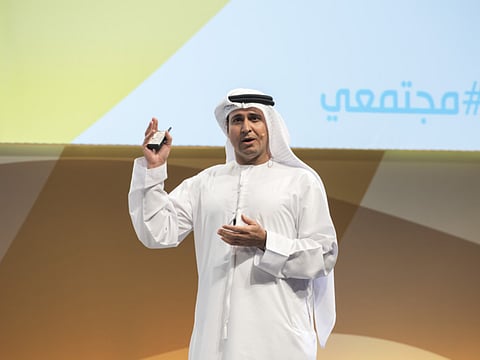Dubai aims to be disabled-friendly by 2020
Public buildings, transport facilities to become more accessible for disabled, elderly

Dubai: Dubai’s Executive Council is working to make public buildings and city facilities friendly for people with disabilities by 2020 — and more accessible for everybody.
From this year, many new public spaces must fulfil a new emirate-wide, disabled-friendly code. At the same time, many older buildings must be retro-fitted to fulfil the requirements of the code.
The new rules are laid out in a detailed 330-word booklet called the Dubai Universal Design Code. Everything from the thickness of handrails (30mm) to the minimum distance of accessible toilets in public buildings (150 metres),
they apply to transport facilities, hospitals and clinics, schools, colleges, mosques, hotels, tourist attractions, and leisure facilities such as art galleries and shopping malls.
The rules are not yet mandatory for residential buildings.
So far, the Dubai Executive Council has worked with 13 government and semi-governmental bodies to build facilities — and retro-fit old ones with accessible layouts.
The bodies include the Roads and Transport Authority, Dubai Municipality, Community Development Authority, TECOM, and the Knowledge and Human Development Authority. The council has also worked with mega-builder Emaar to make The Dubai Mall, among other places, more disabled friendly.
The project, titled ‘Accessible Environments for People with Disability based on Universal Design’, is in line with the wider ‘My Community – A City for Everyone’ initiative to transform Dubai into a disabled-friendly city by 2020.
The term “universal design,” first coined by a US architect in the 1960s, refers to ideas and principles which make spaces more accessible to older people, and people with or without disabilities.
And it’s a term and philosophy that Dubai Executive Council officials have very clearly taken on board.
“[Dubai] has to be accessible even if you had no [disabled people], even if you had zero coming from outside,” said Dr Salem Ali Al Shaifei, director of policies and programmes for rights of people with disabilities at the council.
“When it comes to accessibility, I think the number [of people with disabilities in the emirate] is irrelevant.”
Universal design, Al Shaifei added, does not only address the needs of people with obvious disabilities.
“It actually makes life easier for everybody, including mothers with children, if you are pulling a luggage with wheels behind you, if you are a bit older and a bit slow. Universal accessibility makes accessibility easy [for everyone], including people with disabilities.”
An earlier studying phase of the project, which began in 2014, looked at successful examples of accessibility-friendly planning in the US, Canada and Singapore, among other countries.
Previously, most Dubai buildings were built on a mix of sometimes contradictory codes from other countries. But with the new, Dubai-specific code, Al Shaifei believes that the city will see a noticeable change for the better by 2020.
The council has already trained several dozen engineers and designers and infrastructure maintenance staff working in the multiple government bodies.
“If we can do 80 per cent, even if we can do 70 per cent [of our goals], can you imagine the positive impact this can have on people’s lives?” Al Shaifei said. “It’s huge.”
“The ultimate goal is that people can go up to you and say, thank you, our lives are better.”
“We can go to school, we can go to hospitals, we can go to movies, we can go to the beach, we can go to prayer. We want to see that happening, we want to hear that.”
Entities in charge
Here’s a list of sectors and government bodies in charge of making their facilities accessible for people with disabilities:
- Art galleries and museums: Dubai Culture
- Shopping Malls: Department of Economic Development and Dubai Municipality
- Exhibitions and events: Department of Economic Development and Dubai World Trade Centre
- Judiciary and Police Buildings: Dubai Police, Dubai Courts, Dubai Public Prosecution
- Transportation and roads sector: Roads and Transport Authority
- Health: Dubai Health Authority
- Education: Knowledge and Human Development Authority, Ministry of Education
- Sports and entertainment: Dubai Sports Council, Dubai Municipality
- Mosques: Department of Islamic Affairs
- Airports and border exits: Civil Aviation Authority, Dubai Airports, Trakhees



